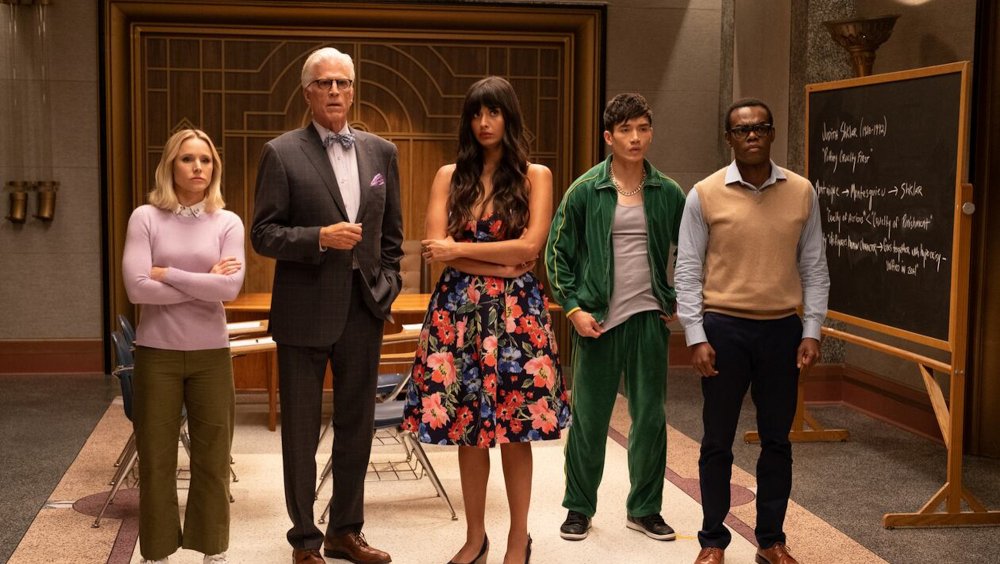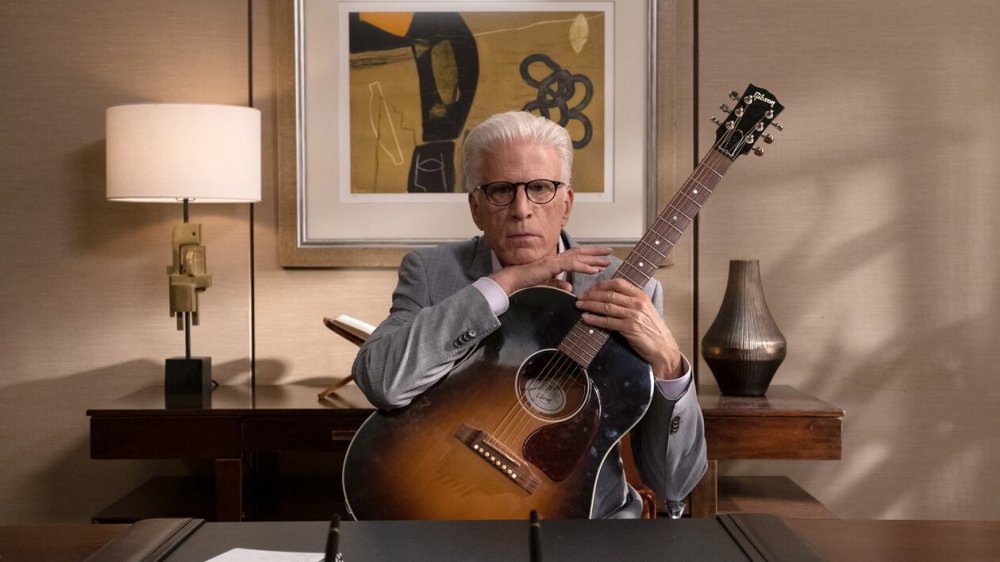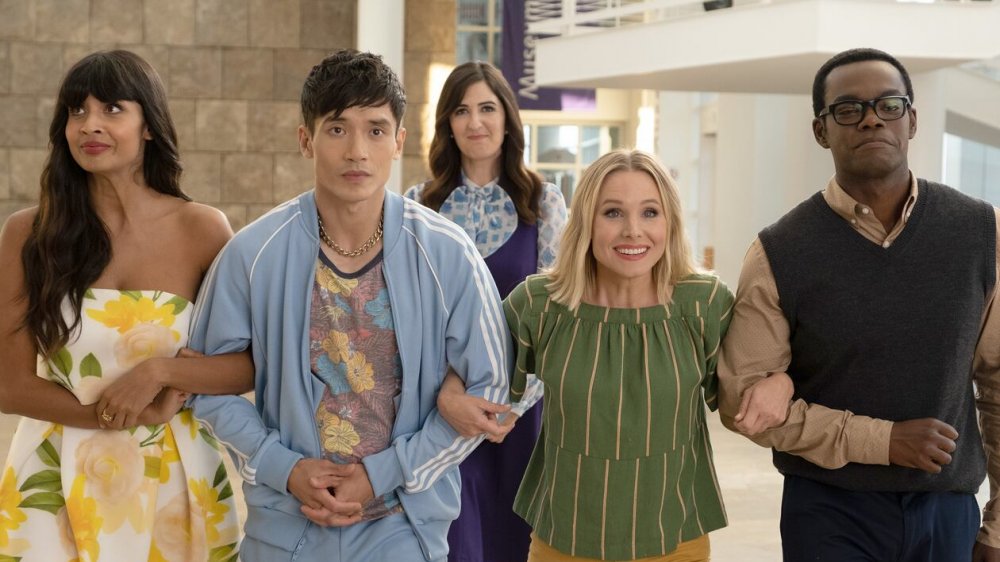The Uncomfortable Question Fans Have About The Good Place
We may receive a commission on purchases made from links.
Over the course of The Good Place's four seasons, the central quartet consisting of "Arizona dirtbag" Eleanor (Kristen Bell), philosophy professor Chidi (William Jackson Harper), solipsistic socialite Tahani (Jameela Jamil), and typical Jacksonville resident Jason (Manny Jacinto) embarked on a quest to save first their souls, then those of all of humanity.
With the help of reformed demon Michael (Ted Danson) and omniscient not-a-girl Janet (D'Arcy Carden), the members of Team Cockroach work their way through a morass of moral dilemmas, ethical quandaries, and sometimes even chainsaw-wielding bears in search of answers about what it takes to live a virtuous life and what we owe to each other (all due credit to ethical philosopher Tim Scanlon). On the way to enlightenment, they solve trolley problems and navigate moral deserts, learning that they are pronounced like dessert and are neither deserts nor desserts.
But fans of the show have noticed that there is one question the show steers clear of — one that indicates that perhaps there's a big defect in the moral universe of the show itself.
Something's missing from the Good Place
As u/Blaze_Pupper asked on Reddit, "What happens to kids who die in this univers? [sic]"
As with many of the questions posited both directly and indirectly by the show, this is a problem that philosophers and theologians have been grappling with for millennia, and people on Reddit for significantly less time than that. In a different post, u/HanonOndricek posits that children are aged up into their adult bodies and maturity levels, the same way the old and infirm can revert to their younger selves — so they're more able to enjoy everything the Good Place has to offer.
In hindsight, it's easy to explain away the lack of children for much of the show's run. The first and most of the second season take place in Michael's Bad Place test neighborhood, where it totally makes sense that there wouldn't be children. Much of season 3 takes place on Earth, where the kids are presumably alright. It's not until the tenth episode of the third season that the situation becomes truly dire, when Neil, the head accountant of the department that tabulates humans' point totals for the purposes of judgment in the afterlife, tells Michael and Janet that no one has been admitted to the Good Place in 521 years. Neil doesn't seem to make an exception for anyone, not Mother Teresa, not Doug Forcett, and certainly not a child.
The real problem with putting children in the afterlife
Given what we know about the Bad Place demons on the show, who tend to be childish and toilet-humor-obsessed yet also structure-craving and change-averse, it's easy to imagine a roomful of children torturing them instead of the other way around. Or maybe they use the children as accomplices. As u/lizardlibrary points out, one torture method referred to by Bad Place denizens is "children's holiday recitals." Who better to staff those than actual children?
Alternatively, if children do bypass the points system to advance directly to the Good Place, viewers still don't get to see them there even after Team Cockroach gains admittance to the real deal at the end of season 4. Do all the kids spend all their time on the other side of the wish-fulfilling green doors, go-karting with monkeys like Jason always dreamed of doing?
Or there could be a different, more prosaic explanation. As creator Mike Schur told the New York Times back in 2017, children aren't important to Eleanor's journey, which is about creating functional relationships with the adults in her life. Worse, inserting a child into the afterlife is a buzzkill for the comedy. "We had this weird realization that you couldn't have anyone in the afterlife under about 30-ish, because it was too sad," he said.
Fair enough. It's not as though the show is lacking in child-like perspectives. From Eleanor's selfishness to Chidi's indecisiveness to Michael's wonder and confusion at human behavior to Jason's, well, everything, it's easy to see the world of The Good Place as a child might, and easier to laugh at it without seeing a child.


